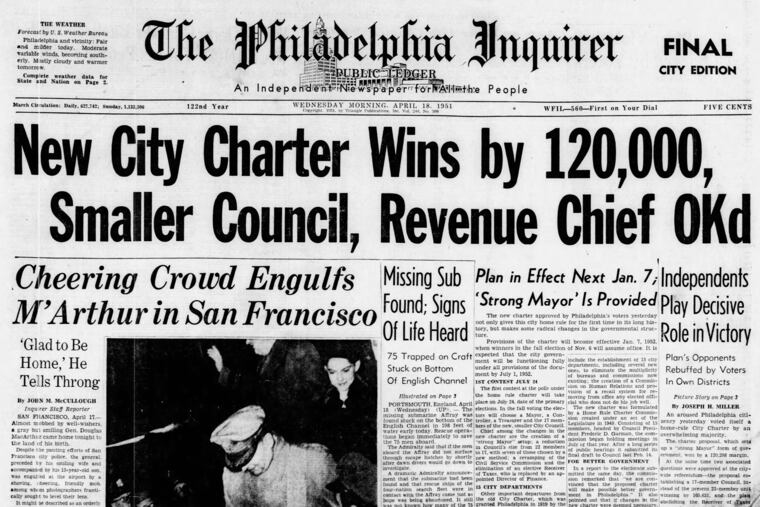Primary School: Ideas we heard this election cycle that deserve your attention | Editorial
Revising the Home Rule Charter, establishing a public bank, and changing the city's building codes to promote efficiency are some of the new ideas we heard during the campaign.

On Tuesday, when Philadelphia’s voters go to the polls, this campaign season will end. The stories of candidates often take center stage in an election. So do the big hot button issues, like the ten-year tax abatement, the sugary beverage tax, and supervised injection sites. But elections are also an opportunity to hear, debate, and share new ideas. In our interviews with candidates and voters, we heard a number of ideas that deserve consideration and further debate, regardless of who gets elected.
Charter convention
In 1951, voters approved the Philadelphia City Charter, the cornerstone of our city’s governance that lays out the balance of power between the mayor and City Council and the duties and offices in city government. In the seven decades since it was adopted, the charter has been amended many times — there are four proposed amendments on the ballot this primary alone.
What if, instead of amending the charter one question at a time, we opened it all up to review and revision? In the 1970s a movement to revise the charter led to the creation of a Charter Revision Commission which made recommendations to City Council and the mayor. It went nowhere. Another more grassroots attempt in 2011 failed.
Appointing a commission to review the charter could allow City Council and the mayor to look at the big picture: Do district council members have too much power over land use? Do we need all the government offices that we currently have, and which new offices do we need? Are we content with the balance of power between the mayor and Council? What about the size of Council?
The ideal culmination of the process would be a public Charter Convention in which the city can debate these issues — and decide if it wants to rewrite the charter.
Public Bank
Philadelphia has billions of dollars in the bank (or actually, a variety of banks). Just like regular customers, the city has to pay interest and fees. What if instead of giving its money to banks, Philadelphia opened a bank of its own? That’s what North Dakota did in 1919, and following the financial crash of 2008, while most states had to slash their budgets, North Dakota experienced its largest budget surplus. The state’s money wasn’t tied to problematic mortgage-backed securities. A public bank can also be used to offer loans to businesses and back mortgages in rates driven by the social needs of the city. Advocacy groups like Neighborhood Networks have been pushing for a public bank. The city has issued a Request for Proposal to study the idea and create a feasibility study for a public bank.
The city’s role in climate change
Cities have a big impact on the environment — both positive and negative. Philadelphia has been a leader in focusing on the impact and mitigations of climate change, but this election sparked renewed interest in ideas like reviewing the city’s building codes for opportunities to ensure energy efficiency, providing contracts only to companies that meet sustainability standards, and investing in renewable energy sources for all city-owned properties.